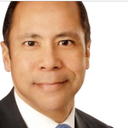Had facelift and woke up with raspy deep voice. Should I be worried about a voice box injury?
Had facelift fee days ago and I woke up with a raspy deep voice. The. Nurse was worried. What can i do to get better and should I be worried about a voice box injury












